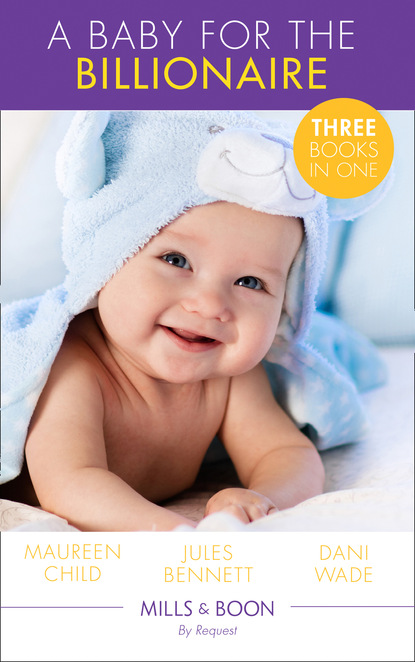
Полная версия
Hearts Of Gold
‘It was torn in a MVA, repaired at the time, but now the cardiologist feels there must be adhesions slowing the flow of blood through the vessel. The echo shows some kind of blockage but it’s where the aorta’s tucked away behind the pulmonary artery and it’s hard to get a clear picture of the problem. Even the MRI doesn’t show much.’
‘Sounds tricky,’ Annie said, though he guessed from the relaxation in her voice that she was relieved by the topic. ‘I’m assuming that’s this morning. You’ve a couple of patients booked for consultations this afternoon.’
They were inside the staff entrance, in the small alcove where he’d waited for them yesterday, and she turned and smiled at him.
‘To think I doubted you’d get referrals. I know Phil laughed at me when I said as much yesterday, but I wondered if paediatric cardiologists here would prefer to continue to use the surgeons they knew.’
He found himself smiling back.
‘I knew I could always take cases from the waiting list at Children’s. That was part of the deal, but referrals? I had a few doubts about them myself,’ he admitted, still smiling, because Annie’s smile had brightened up his day.
He sent a new thought-wave to his sister. Total muddle-headedness!
Annie wondered if it was because they were in the hospital—on her home ground, so to speak—that she felt able to relax. Back there, when he’d said her name, even premature menopause couldn’t explain away the quiver of excitement that had ricocheted through her body. But now they were talking work, and she was so relieved she smiled at him. A real smile, not a pretend one, so the score on small lies for the day remained at one.
And he was smiling back—which made her confidence on being on home ground waver slightly. But she held firm and asked about the operation, and somehow they made it to the office without any further manifestations of her condition.
Manifestations of something else, perhaps, when they’d bumped together in the lift, but it certainly wasn’t love, she assured herself. Attraction, maybe. And why not? He was an attractive man.
That thought alone was enough to make her seek refuge in her work. It had been so long since she’d considered the attractiveness or otherwise of men, this time she felt a shiver, not a quiver, and the shiver was more fear than attraction.
‘Come on, the unit can’t afford too much overtime. We’re all heading for that pub up the road for a drink to celebrate day two safely over.’
Phil had poked his head around the door and, looking at him, Annie suspected he hadn’t poked more of his body into the office because the rest of it was attached to Becky.
‘Maybe later. If you’re still there.’ Second small lie of the day as she had no intention of going near the pub. But it was only a self-preservation-type lie so surely that didn’t count! ‘Right now I have to finish some requisitions or the Great will have my hide.’
Phil rolled his eyes. ‘Forty-eight hours into the job and he’s got you bluffed already. Believe me, his bark is far worse than his bite—not that he barks all that often. Come and see the man relax—learn for yourself he’s human.’
For some reason Annie’s mind flashed to the kiss, and though she didn’t tell Phil, she was willing to admit to herself that she knew for sure he was human.
‘Maybe later,’ she repeated, pulling a sheaf of paper across the desk to let him know she was serious about working.
He shrugged good-naturedly and walked away, but what seemed like only minutes later her diligence was again interrupted.
‘Phil says you’re not coming for a drink. He’s blaming me—says I’m a slavedriver. Is there really so much work for you to do?’
Annie considered lie number three, then shook her head.
‘Not really. I do want to check these letters going out to possible corporate sponsors. You mentioning that cardiac units can generate more money than most hospital divisions started me thinking. It won’t take long, but I don’t feel like going out tonight anyway. I’ve not let anyone know I’d be later than usual, so I’d prefer to go straight home.’
Was that a lie? I’d prefer not to spend avoidable time with you would be closer to the truth, but that could be translated into going straight home.
‘There are people at home you have to let know?’
He asked the question softly, as if he didn’t want it to sound like prying.
‘Of course,’ she said, answering the question yet knowing it wasn’t an entire answer.
Knowing immediately from his silence he was waiting for the rest of it.
‘Dad and Henry. Both at home. Waiting.’
The silence that followed this less than explicit explanation seemed to hover in the room like a third person, then Alex nodded briefly, said, ‘Goodnight, then,’ and walked away.
‘If he’d asked, I’d have told him Henry was a dog,’ Annie told the door which had closed behind him.
‘Plege on!’ Alex said, the order crisp.
Who outside this room could guess it meant a cocktail of chemicals and nutrients, in the main a potassium solution—poison—would flow into the baby’s heart?
The tiny heart stopped beating. It was pale and floppy-looking, clearly visible to Annie where she stood on a stool behind the heart-lung machine that was oxygenating the baby’s blood while the intricate surgery took place.
She held her breath, knowing every second Baby Ross was on the machine increased the risk of long-term damage to his frail body. Alex had explained exactly what would happen at every stage of the operation. He’d called all unit staff, including the sisters from the special care unit, together and drawn diagrams on a whiteboard, but nothing had prepared Annie for how small and totally vulnerable Baby Ross would look on the operating table, or how desperately sad it would be to see the still, lifeless little heart.
She reminded herself his heart would start beating again within minutes. That Alex was the best at what he did. She swallowed the lump of fear for Baby Ross that had lodged in her throat, and concentrated on what was happening now.
The switch, they called it. Baby Ross had been born with TGA, or transposition of the great arteries, which in effect meant that oxygen-rich blood from his lungs, instead of being pumped around his body, was being pumped back into his lungs, while oxygen-depleted blood was recirculated through the rest of his body.
Baby Ross was unlucky to be born with TGA, but his lucky break had been being born in St James’s—Jimmie’s as the staff called it—not just at any time but three days after Alex and his team had begun work there.
Annie studied the man they called ‘the Great’.
Cool. Detached.
Ruthless?
She wasn’t sure about the last, although both the other words would describe her impressions of the man. Having worked with critically ill children for the last five years of her career, Annie knew both the children and their parents needed very special characteristics from their doctors and nurses—characteristics like warmth, compassion, understanding.
Yet the parents she’d seen with Alex in consultations in his rooms didn’t seem bothered by his attitude. In fact, some of them—the fathers in particular—seemed to appreciate the forthright way he described their child’s condition, and the deliberate way he warned them that all surgery had potential dangers for the patient, who could die or be brain damaged for life.
The first time Alex had said this in Annie’s hearing, she was sure she’d reeled from the shock, but in retrospect had decided it was only fair the parents knew the risk, although Alex had quickly followed up his warning with statistics proving how unlikely such an outcome was.
Her thoughts were wandering but her eyes followed every move of the surgeons’ hands. Alex, Phil and a surgical registrar Annie didn’t know were all working on this one small mortal, while Rachel passed instruments and Kurt Reynolds operated the heart-lung machine, making sure the flow of blood was just right for tiny fragile arteries and veins. Maggie Walsh gave blood-gas readings and oxygen perfusion rates in a calm, relaxed voice.
Maggie, a petite brunette, oozed confidence, a great asset in an operating theatre where things could so easily go wrong. Even when Baby Ross had arrested earlier, she’d remained calm, giving Alex the information he’d needed, easing everyone’s tension with her quiet calls of pressure and blood gas.
Was she involved with Alex?
Annie wasn’t sure why the thought entered her head, but once it lodged there she looked from Maggie to Alex, considering the idea. Almost wishing she’d gone to drinks with them on Tuesday evening so she could have seen them together socially.
She gave an impatient shake of her head and turned her attention to the tiny form on the table, although she was sure she felt a frown gathering on her forehead and there was a definite squeamishness in her stomach.
Nonsense!
She concentrated on the operation, watching the glove-sheathed fingers of the surgeon sew with thread so fine she couldn’t see it. The clock on the heart-lung machine ticked off the seconds. Baby Ross had already been dependent on it for over an hour. Below the clock, another set of digital numbers—the baby’s core temperature. Baby Ross’s blood had been slowly cooled as it had gone through the machine so when the machine was stopped for the final stages of repair, he wouldn’t suffer brain or other organ damage.
All this Annie knew in theory—theory she’d brushed up on before the hour the staff had spent in front of the whiteboard—but her own heart thudded with tension as the operation continued. How much could this tiny baby take?
She looked at Alex again, and saw the precision with which he moved, the teamwork between himself, Phil and Rachel. They made it look easy—a symphony of hands moving in concert—and though one small slip could mean the baby died, Annie couldn’t feel any tension emanating from the group.
A little of her own tension eased, as if their confidence was transferring itself to her, but when the heart was stimulated and cannulae to and from the heart-lung machine were removed, the tension built again, until the little heart pumped on its own and the repairs to the big vessels held.
A faint cheer from Phil, while Alex nodded his satisfaction, stepping back from the table and pausing there while the circulating nurse unplugged his light.
Annie glanced at the clock and saw the operation must have proceeded according to plan, for Alex’s estimation of the time of completion of the major work had been spot-on.
He would now leave Phil and the registrar to close.
Annie remained where she was. She hadn’t done much theatre work in recent years, but she knew from her work in paediatric special care units that every stage of an operation was important. OK, if Phil slipped up and didn’t insert his stitches into Baby Ross’s chest just so, it might not make a difference to the final outcome of the operation, but regularly spaced stitches put equal pressure on the fine new skin, so the wound healed more quickly and left less scarring.
She gave a nod of satisfaction as she saw Phil’s work. He might be a light-hearted flirt outside the theatre, but in here he was as meticulous as his boss.
Alex, still trailing the cord from his light, stripped off his gloves and gown and dumped them in a bin. The design of the new theatre meant all the electrical equipment was contained in one central column so there was no tripping over leads and having no room to move because of bulky equipment. Even the echocardiogram machine was fitted into the column, with screens around the walls of the theatre so everyone could see what the machine found.
In this case, as Kurt, who was working it, had run the sensor over Baby Ross’s chest, it had showed blood flowing sweetly through the switched vessels, and now the camera in the column was focussed on Phil’s hands as he closed.
Alex sighed, awed as ever by the insults such small mortals could take to their bodies and yet survive. Behind him, an increase in the chat level signalled the operation was nearly at an end. Normally, he’d be operating again within an hour, but he’d deliberately not scheduled anything for this week, wanting to get the unit organised to his satisfaction first. Baby Ross had been an emergency admission—and in some ways it was good to get that first op out of the way.
Annie had said as much when he’d called the staff together for a pre-op briefing, and he’d wondered if she’d been as nervous as he had been about this first case in the new unit.
Annie, or Rowena?
He shook his head, unable to figure out why he couldn’t let it go. OK, so he’d looked for his ghost on and off for years, trawling through the names at medical conventions, checking lists of hospital employees. Not all the time—not obsessively—not quite obsessively…
She didn’t give much away—the woman everyone knew as Annie Talbot. Very self-contained. Very cool. Utterly charming to everyone she met, yet detached somehow.
He smiled to himself—knowing that was exactly how people described him. But he had his reasons for avoiding emotional involvement. Although he rarely admitted it, his job made huge demands on his emotions. To hold the life of a newborn infant in your hands—to hold the dreams of the infant’s parents—this was where his emotion was spent.
So where did Annie spend hers?
On Henry?
Was he a boyfriend? Lover? Partner?
He turned as he remembered she was here in the theatre. Remembered telling her he wanted her to observe the operation. She was still perched on the stool, and he saw her give a nod as if approving Phil’s handiwork.
‘Can I help you down?’ he said, then clutched at her waist as she wobbled precariously.
‘Sorry, you startled me,’ she said, her soft throaty voice made huskier by the mask she was wearing, although she was beyond the vital ‘clean zone’ of the theatre. ‘Yes, I could do with a hand to get down.’
Eyes he’d thought green earlier today but which now seemed blue looked down into his then slid away as if embarrassed by his closeness, while beneath his hands he could feel her body contracting—drawing away from his touch.
Drawing away as it had once before…
What rot! his brain scoffed as he lifted her easily and set her down on her feet. But the speed with which she stepped back made him wonder if it had been rot, or if she had indeed flinched from his impersonal touch.
Not that it mattered one way or the other. Now she’d seen something of his work, there’d be no further need for her to be lifted off the stool by himself or anyone else.
Especially not Phil, who’d taken the liberty of lifting her up there!
‘That was unbelievable,’ she said. ‘I’m glad you suggested I watch.’
She’d moved to the wall and was watching the screen that showed the registrar, under Phil’s instructions, securing the drains, catheters and pacemaker wires on the baby’s body.
‘That’s the pacemaker,’ Alex explained as she peered closer to see Phil adjust the wires. ‘It’s there in case Baby Ross’s heartbeats need regulating over the next few days. A heart that’s suffered the trauma that one did during the op might not work perfectly as it heals. We give dopamine as well, to keep it beating.’
Alex saw Annie nod at his explanation but her eyes remained on the screen as she watched the final stages of the operation. She lifted her hands to untie her mask, undoing the top strings and letting it dangle, revealing a slight smile hovering on her pale, curved lips.
‘You must have done so many, to be so sure in all your actions.’
The words, and possibly the smile, were meant for him, but her eyes, and, he thought, her attention were still on the screen.
‘What now?’
‘For Baby Ross?’ Alex said, coming closer so he could check the tubes and wires were all positioned as he liked them. ‘He’ll go back to the PICU on the respirator, and we’ll see how he is when he wakes up tomorrow. Sometimes babies are strong enough to breathe on their own after twenty-four hours, but this little chap was so young, we’ll just have to wait and see.’
He paused then touched her lightly on the shoulder.
‘Good to have the first one over?’
‘I was thinking that myself,’ she said, ‘though it seems unfair to be pleased about something when that little fellow has been through so much—and will go through more before he can be discharged.’
‘We should always be pleased when things go right,’ Alex told her. ‘Things go wrong all too often, so it’s right to rejoice in successes.’
She studied him for a moment, then nodded and smiled.
‘OK, I’ll rejoice without the guilt,’ she said, and walked out of the theatre.
Alex followed, pausing at a cupboard outside the theatre to pack his loupe into its special wooden case, then he did the same with the fibre-optic light. Tools of his trade, he thought, as he often did. More important for the delicate and intricate work he did than the needles and thread. Well, maybe not more important, but as important. Weird conversation to be having with himself, but a successful operation invariably left everyone on a high, and his high, since he’d lifted Annie off the stool—felt his fingers span her tiny waistline—seemed to be taking off in an unexpectedly sexual direction, so it was better to think about loupes and lights.
At least she’d walked away now, so his physical awareness of her had lessened.
Was it because she reminded him of the ghost that he felt this?
Because she might be the woman who’d featured, on and off, in his dreams for the last five years?
He shook the thoughts away.
It wasn’t that he was against involvement with work colleagues, although personally he did his best to avoid it, but Annie gave off vibes that would put off any but the most determined of suitors. There wasn’t much of her—above medium height but slim, almost willowy, yet she generated an enormous amount of ‘don’t mess with me’ attitude. Even Phil had backed off his usual flirtatious approach.
Though knowing Phil, he was probably planning to come at her from a different angle. Alex caught his finger in the catch on the box and cursed softly. At least he told himself it was the catch that had made him swear.
Why Phil felt that every pretty woman he met presented him with a challenge, Alex didn’t know. Though to be fair to Phil, he usually went for blondes so maybe Annie would be safe from his attentions.
She’d better be, he grumbled to himself as he changed, but the possibility that Phil might consider a darker-haired woman as fair game rumbled within him as he made his way to the office.
Annie looked up from some paperwork as he walked in.
‘I saw Baby Ross’s parents on my way here,’ she said, ‘and told them everything had gone well. I said you’d probably see them in the special care unit later. Coffee and sandwiches should be here any minute.’
Alex’s scraggly brows drew together in a frown.
Had she come on too strong? Made herself sound too businesslike?
Should she not have spoken to the Rosses?
She was about to apologise when the frown cleared and he smiled. At least, she thought it was a smile. It wasn’t exactly radiating warmth and sunshine, but it stretched his lips and even pressed the hint of a dimple into his left cheek. Something she hadn’t noticed before.
‘I’m sorry, I was still thinking about the procedure.’
His excuse sounded lame, but Annie could hardly accuse him of lying to her about his frown. As if it mattered, she scolded herself crossly, watching him settle his rangy frame into the comfortable chair on the other side of her desk, then reach for the sheaf of mail she had waiting for him.
But somewhere deep inside her was a niggling feeling that it did matter. She could tell herself it was because this new work relationship was the most important one in her career thus far. That this was her dream job, and she wanted to get it right from the very beginning. But she didn’t think she’d believe it…
An aide came in with a tray holding a big pot of coffee—Annie was getting used to Alex’s coffee addiction now—two mugs and a plate of sandwiches. She lifted the plastic wrap off the sandwiches and pushed the plate towards him, then poured his coffee, glad to have something to do while her mind teased at the niggle she was feeling.
OK, so there were some small hitches. The long shadow thrown from the past for a start, but if she kept denying they’d met before—not that he’d ever mentioned it again—surely they’d get past that.
And then her attraction to him—she’d get past that as well.
And as long as she was here and Dennis was in the US, then any tenuous link between him and Alex wouldn’t matter.
Maybe—eventually—when Alex went back to the States, it would be different. Maybe then there’d be some danger. Maybe, just before he left, she’d have to tell the truth…
Satisfied with this decision, she reached out for a sandwich, mistiming the movement so her hand brushed his. He looked up from the letter he was perusing, the movement so quick she knew he’d felt the same jolt she’d experienced. More electrical than sexual, like a mild shock.
‘Dry air?’ His eyebrows lifted and his lips half smiled as he asked the question, but Annie, mesmerised by that half-smile, couldn’t answer. She looked away, while heat again surged into her cheeks.
‘It must be,’ she said, released from the spell and using her hands to hide her colour. Then, after checking his hands were nowhere near the sandwiches, she reached out again.
Alex tried to concentrate on the letter he was reading, but knew he’d have to read it again later. In another room. Away from Annie and the strange effect she was having on him.
He glanced at her, head bent as she ate her sandwich, pretending to be reading the file in front of her. He knew she was pretending, because he was as well. Silky dark hair fell forward on either side of her face so all he saw was the curve of her cheek, pale as cream, enhanced rather than marred by that light scattering of freckles bridging her neat, straight nose.
A slim, neat, self-contained person, he guessed, but super-efficient, according to Col Bennett, the CEO.
He remembered the way his hands had almost spanned her waist and the feeling of lightness as he’d lifted her off the stool. Remembered the same feeling of lightness as he’d danced with his ghost. Was he still in post-op euphoria that he couldn’t concentrate on business matters? That he was distracted by this woman?
Post-op euphoria was common, although, generally speaking, he didn’t get it after a straightforward operation like Baby Ross’s. Different hospital, new theatre—either could explain it. But did the euphoria usually take the form of distraction?
Not women-type distraction, he was sure.
In fact, a lot of his ability to focus so strongly on the job stemmed from his deliberate decision to avoid women-type distraction. Not avoiding women as such, just any distraction associated with them.
Avoiding emotional dependency.
The woman he was pretty sure wasn’t distracting him gave a little cough and he realised he’d been miles away, lost in his thoughts—distracted!—instead of checking his mail and giving her answers to any questions she’d written on it.
‘What if I take it all through to my office and rough out some answers for you?’ he suggested.
‘No way,’ she said, then, perhaps noticing his surprise, she added, ‘I’ve worked with doctors for years. That mail will go into your office and not be seen again for months. No, Dr Attwood, today’s the day. There’s nothing difficult, and if we work through it together we should be finished by the time you’ve eaten your lunch.’
‘Slavedriver,’ he muttered at her, and heard her laugh.
The sound, so clear and fresh and light-hearted, startled him, and he looked across at her again and decided maybe he was wrong about her being his ghost. His ghost had had dark, bruised shadows under her eyes, and had carried a weight of sadness he had felt as he’d danced with her.












